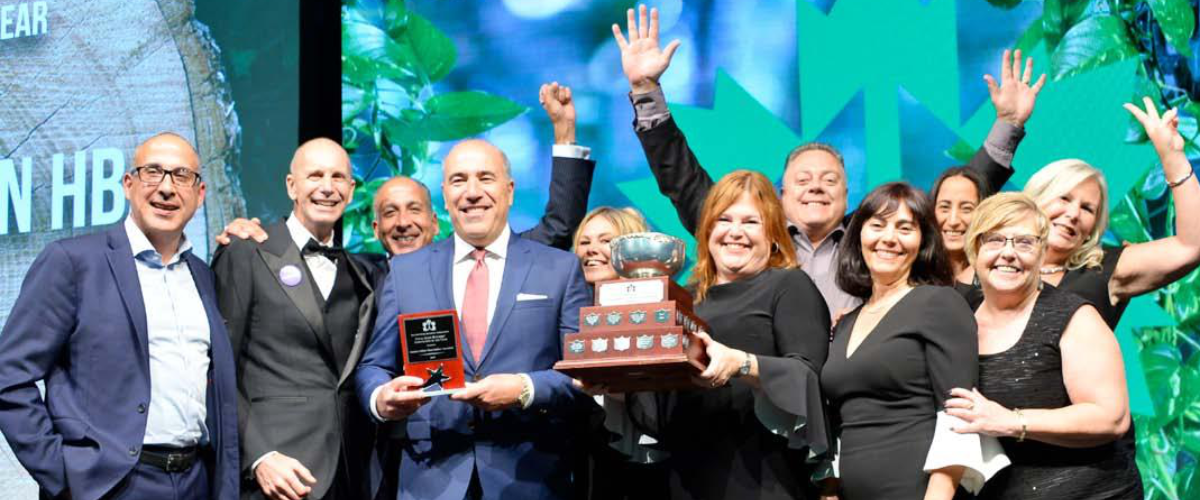Awarded to a local association that excels in advocacy work, membership engagement and community contribution, this year’s tribute paid homage to, among other factors, HHHBA’s leadership in building Ontario’s next generation of skilled workers.
Through several programs, including Women in Industry, the Hamilton-Halton association works with community colleges, universities, high schools and local job fairs to help find, train and retain the next generation. In addition, HHHBA has worked closely with OHBA on initiatives related to the Growth Plan, Conservation Authority and Bill 108 The More Home, More Choice Act.
“Hamilton-Halton HBA has a long history of volunteering at the provincial and national level, providing resources and assistance wherever and whenever needed,” noted Bob Schickedanz, OHBA’s newly minted president.
“We wanted to win this one,” admitted Mammel. “Over the last year, we had a lot of changes. Last year at this time we approved a new strategic plan. We restructured our staff and decided to really set a focus on growth and retaining membership. We grew our membership by over 15% this year. At the end of last year, we put together a new Women in Industry committee. I think we might be the only local HBA in the country that does that. And we have a series of offerings to really promote three things: skilled trades and STEM (science, technology, engineering, math and medicine) career choices for grade school kids; promoting women who have entered the trades or engineering— professions that are atypical of women’s careers; and then supporting women throughout our industry. We’ve really taken what I call a small local mentality and tried to raise the bar.
“It takes a team,” Mammel adds. “We’ve got people offering to go into schools to talk to kids. But there is another educational component to this skilled trades issue that’s critical: the parents. There’s a perception, including from immigrants who are hoping for something better for their kids, that those trades—electricians, bricklayer, drywaller—aren’t jobs they want for their kids, so they’re pushing them elsewhere and to go to university. So what we’re trying to do is really focus on girls and take a tradesperson, a technologist and a professional who are working in this nontraditional field of land development and residential construction, and say, ‘Look at all the choices there are in this industry! Maybe you like laying sewer pipe, maybe you like doing drywall, maybe you like design or real estate law—they’re all really cool careers.’”
What are women missing now? “I think one thing is support,” Mammel says. “People decide to pursue these careers, and then they’re in a class full of guys and there’s no real support for them. When I started at Mohawk in Engineering, I was the first girl in my class. There was ultimately a second girl, and we became friends because we were thrust together. But I think these girls still have a hard time, sadly, when they get into their first careers, because people on those jobs aren’t used to them. As much as we like to think that over the past 20 years ago things have changed, when it comes to the practical reality of it, I’m not convinced that they have.”


